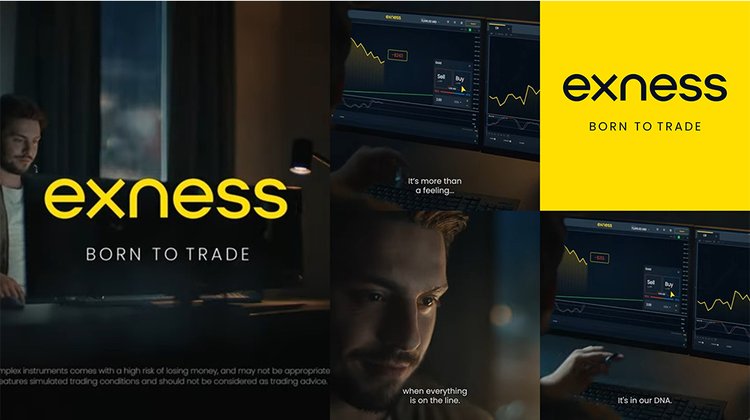
Understanding the Exness Average Spread: What Traders Need to Know
The world of forex trading can be complex, but understanding the exness average spread Exness اسلامی اکاؤنٹ and its average spread is crucial for any trader serious about maximizing their profits. The average spread is a key factor that influences the overall costs of trading and can have a significant impact on your bottom line. In this article, we will dive deep into what the average spread is, how it affects trading, and why it is essential to consider when choosing your broker.
What is Average Spread?
The average spread represents the difference between the buy (ask) price and the sell (bid) price of a financial instrument. It is typically measured in pips and serves as the main cost that traders incur when entering or exiting trades. For example, if the EUR/USD pair has an ask price of 1.2000 and a bid price of 1.1980, the spread is 20 pips (1.2000 – 1.1980).
Types of Spreads
There are generally two types of spreads offered by brokers: fixed spreads and variable spreads. Fixed spreads remain constant regardless of market conditions, while variable spreads fluctuate depending on market liquidity and volatility. Understanding these two types can help you choose the best trading strategy for your needs.
1. Fixed Spreads
Fixed spreads are advantageous for traders who prefer consistency and predictability. Since they do not change, traders can anticipate their costs with more accuracy. However, the downside is that fixed spreads are generally wider than variable spreads during normal trading conditions, as brokers need to account for market fluctuations.
2. Variable Spreads
Variable spreads, on the other hand, can offer tighter spreads during periods of high liquidity. However, they may widen during times of low liquidity, leading to potential increases in trading costs. Traders who are active during both high-volume and low-volume periods may find variable spreads more advantageous when the market is favorable.
The Importance of Average Spread in Forex Trading
The average spread plays a pivotal role in a trader’s profitability. When spreads are narrower, the cost of entering and exiting trades is lower, which can significantly enhance profitability, especially for day traders and scalpers who make multiple trades in a short time. Conversely, wider spreads can lead to diminished returns.
Impact on Scalping Strategies
Scalping strategies, which involve making numerous trades within very short timeframes, are highly sensitive to spread costs. Even a small difference in the average spread can impact overall profitability. Traders who employ scalping techniques should therefore pay close attention to the average spread offered by their forex broker, such as Exness, to ensure that they can effectively execute their strategies without incurring excessive costs.
Impact on Swing Trading Strategies
Swing traders generally hold their positions for a longer time compared to scalpers. While the average spread is still important, the impact of spread costs may not be as pronounced. However, in volatile markets or during economic events, spreads can widen, impacting overall profitability. Thus, having a reliable understanding of Exness’s average spread is valuable for swing traders too.

Factors Influencing the Average Spread
Several factors can influence the average spread a trader will face on Exness or any other trading platform. Understanding these factors can help traders make informed decisions while trading.
1. Market Liquidity
Liquidity refers to the availability of buy and sell orders in the market. Higher liquidity generally leads to narrower spreads, while lower liquidity can cause spreads to widen. During major market sessions, when trading volumes are typically high, traders can expect tighter average spreads.
2. Market Volatility
Market volatility often leads to fluctuations in the average spread. During times of economic news releases or global events, the markets can become highly volatile, causing spreads to widen. Traders need to be cautious during such times, as the costs of entering trades can become significantly higher.
3. Trading Instruments
Different currency pairs will often have different average spreads. Major pairs like EUR/USD and USD/JPY will usually have tighter spreads compared to exotic pairs. Choosing the right pairs to trade based on their average spreads can help maximize profitability.
How to Evaluate the Average Spread
Before choosing Exness or any brokerage for your trading needs, it’s essential to evaluate their average spread. Comparing the spreads of different brokers can reveal which one offers better trading conditions. Many brokers provide information regarding their average spreads on their websites.
1. Utilize Demo Accounts
Before deciding to trade with an actual account, it’s recommended to utilize demo accounts for testing. Demo trading allows traders to experience the live spreads that a particular broker offers and provides an opportunity to gather practical insights without risking real funds.
2. Read Broker Reviews
Checking online reviews and trading forums can provide valuable insights into the average spread offered by brokers over time. Traders often share their real experiences and findings, which can be beneficial when structuring your trading strategy.
Conclusion
Understanding the Exness average spread is crucial for maximizing your trading potential. With intricate knowledge of how average spreads work, the types of spreads available, and factors affecting spreads, traders can make more informed decisions that can save them money and enhance their profitability. Always stay updated on market conditions, and never hesitate to adapt your trading strategies based on the average spread you encounter.
Read More

